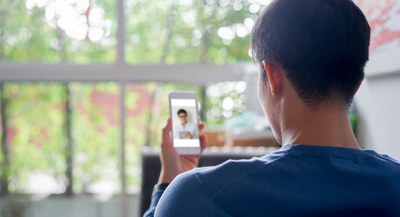 Overview: The COVID-19 pandemic has forced many opioid users to deploy telemedicine to communicate with their provider and receive the mentoring they need to reduce or eliminate substance use. A new study has found that telemedical care with a preferred care provider (PCP) has a significant impact on reducing dosages and consumption altogether. This was unassociated with other mental or physical health factors.
Overview: The COVID-19 pandemic has forced many opioid users to deploy telemedicine to communicate with their provider and receive the mentoring they need to reduce or eliminate substance use. A new study has found that telemedical care with a preferred care provider (PCP) has a significant impact on reducing dosages and consumption altogether. This was unassociated with other mental or physical health factors.
Does Telehealth Work For Pain Management?
One of the fundamental concerns of the COVID-19 pandemic was whether remote systems could replace in-person visits. Questions were raised by patients and providers about emotional connection, accountability, and behavioral choices. As pain, in particular, is a unique experience, doctors have been uncertain whether in-person visits are more effective with its management.
A recent study has shown that using telemedicine sessions with a primary care provider (PCP) can have a powerful effect on patients. The study looked at a small sample of members of the American military who were tapering their opioid consumption. Half had regular remote sessions with their PCP focused on mentoring and emotional care, while the control group did not.
Interestingly, when the study concluded, while there was no change in overall consumption, the telehealth group was both more likely to have stuck to the tapering regimen or even to have ended use of opioids altogether.
Most importantly, these outcomes were separate from other factors, such as overall mental health and other medical concerns. While the sample size is small, and more research is needed, it appears that telehealth with PCPs is a promising tool for tapering opioids and maintaining emotional health.
 Does Telemedicine Have Advantages?
Does Telemedicine Have Advantages?
While the study didn’t interview the subjects to get their thoughts on the process, videoconferencing in mental health offers several advantages.
The most basic is logistics and cost. As smartphones and computers with webcams are now commonplace, and as mobile data systems have improved, connecting with a provider that the patient trusts is as simple as placing a call. Patients don’t have to arrange transportation to a doctor’s office, worry about fitting an appointment into a busy schedule, have to miss an appointment due to personal commitments, or talk to a person they don’t know well simply because they’re the only one available.
Videoconferencing with a PCP allows for consistency in treatment and mentoring, which is crucial to effective mental health outcomes. Knowing that they’re accountable and will check in with somebody who cares for them can help individuals maintain recovery. For people who are managing their recovery while continuing with work, or who have to travel for family or personal concerns, telehealth visits allow them to stay in touch with providers they’re comfortable with.
That said, there are some drawbacks. A dead battery or a crashed network can mean a missed appointment, and there are concerns about the emotional remove inherent in videoconferencing. This can have different effects; it may help some to open up more, while others may close down.
Nor is it being viewed as a replacement for other forms of therapy, but rather as a tool to be used to help with pain management and substance use disorder.
How Harris House Can Help
Telehealth is just one way to create a supportive recovery environment so that patients can focus on what they need. If you need help creating that supportive environment for yourself or a loved one, contact us.


 Does Telemedicine Have Advantages?
Does Telemedicine Have Advantages?





